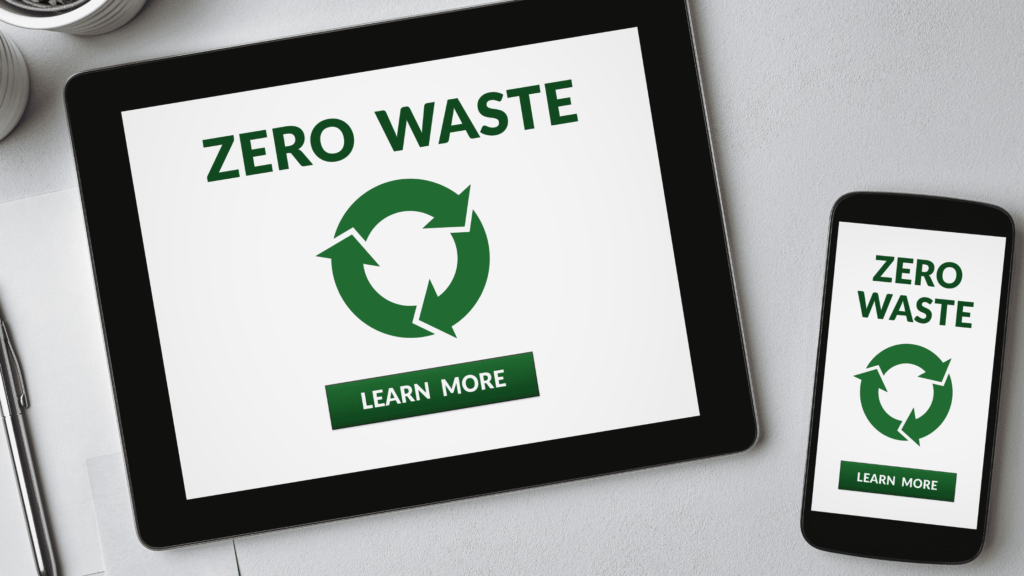While a trip to the grocery store may conjure up images of colorful produce, grab-and-go meals, and must-have packaged snacks, another image less likely to come to mind is tons of waste. Still, zero-waste stores is a concept that is becoming increasingly more mainstream.
The zero-waste supermarket focuses on just that – zero waste. These stores can accomplish this through a bulk food merchandising system. Since the trend is to shop for products without bags, zero waste stores can provide eco-friendly solutions to consumers.
The Shopping Movement Towards Sustainability
You’re more likely to be concerned with variety, selection, and convenience when shopping at your local market. What you probably neglect to consider however is all of the plastic, including:
-
The individual packaging and wrappers on every item you buy
-
The plastic bags you use for produce
-
The bags at the checkout counter your groceries are placed in
Although it often goes without thought, eventually, that plastic will turn into trash, finally finding its way dispersed in oceans or landfills. As you can imagine, this waste all adds up quickly. Over the last 15 years, the sustainable shopping movement has increased in popularity and eventually created the zero-waste supermarket concept.
The Solution: Zero Waste Stores
In the United States alone, there are more than 14 million tons of packaging waste produced by grocery stores every year and 40 million tons of food waste. As society becomes more aware of the perils of plastic waste pollution and its harm to the earth, a budding grocery store concept has taken center stage.
What are Zero-Waste Stores?
Europe opened its first zero-waste supermarket in the late 2000’s. In these stores, reusable items replaced traditional plastic packaging. It took some time, but slowly the U.S. caught on to the concept of zero-waste stores.
What is a Zero-Waste Stores’ Goal?
Zero-waste stores have one simple goal: move towards the elimination of all food and packaging waste from grocery stores. Instead of using bags made from plastic to collect customers’ groceries, zero-waste supermarkets require them to bring reusable bags into the store and organize their items.
What if a Customer Isn’t Prepared?
Not surprisingly, not all customers who walk into zero-waste supermarkets come prepared with reusable packaging of their own. Thankfully, stores can provide reusable bags or paper bags to customers if needed.
What Do Zero-Waste Stores Look Like?
It’s common to find zero waste stores feature a market-style or warehouse layout. The items within the store are bought in bulk rather than individually wrapped, single-use packaging. The stores can eliminate excess plastic waste in substantial quantities this way.
The Impact of Zero-Waste Stores
The greater sustainable shopping movement, including zero-waste supermarkets, has made a significant difference in both practice and concept. Today, the difference stores make regarding eliminating single-use waste from daily operations is visible.
The movement doesn’t stop within these zero-waste stores though. The movement towards zero-waste has initiated actions across chain corporations of retail grocery stores. Grocery stores in the United States are responsible for 10% of the country’s food waste, nearly 43 billion pounds annually. Food packaging makes up 23% of all landfill waste in the country. Now, the biggest names in the industry are vowing to create improvements.
Conclusion
The industry’s commitment to reducing waste is occurring at every level. Even though zero-waste supermarket strategies may look different for small start-up grocers than large supermarket chains, there are opportunities.
Zero-waste stores nurture a concept that reduces greenhouse gas emissions and reduces waste. Since it prevents waste of water, oil, and other natural resources used to produce and deliver food, the zero-waste supermarket is the future movement. It also prevents plastic pollution in the oceans.
Best of all, not only does zero-waste save the environment, but it can help save businesses money too by reducing disposal, labor, and energy costs.







